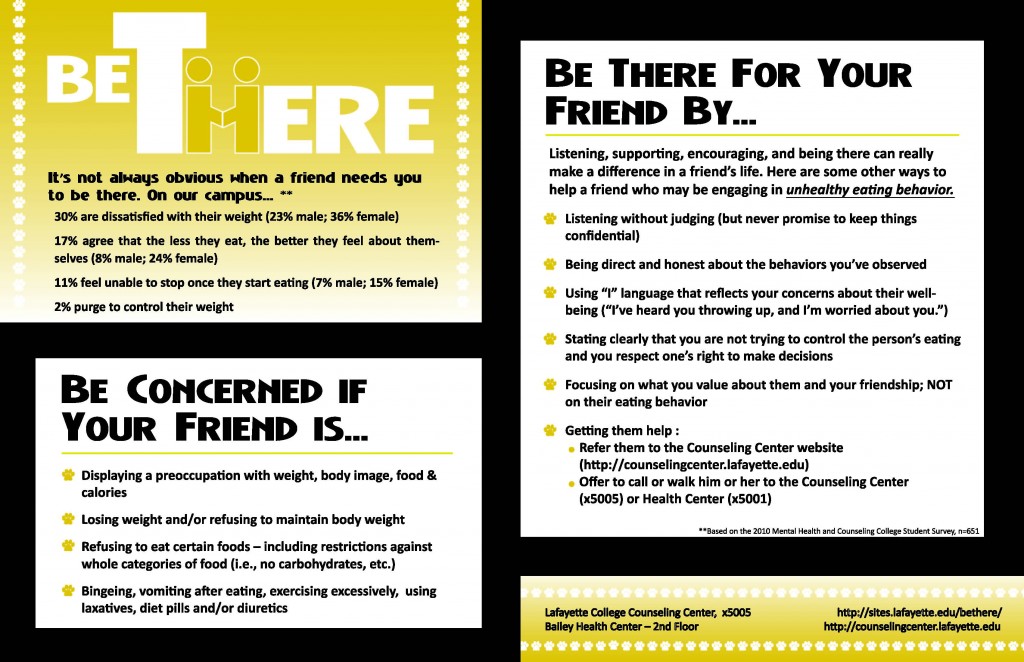It’s not always obvious when a friend needs you to be there. On our campus. . .
- 30% are dissatisfied with their weight (23% male; 36% female)
- 17% agree that the less they eat, the better they feel about themselves (8% male; 24% female)
- 11% feel unable to stop once they start eating (7% male; 15% female)
- 2% purge to control their weight
**Based on the Mental Health & Counseling Student Survey (2010)
—————————
Be Concerned If Your Friend Is. . .
- Displaying a preoccupation with weight, body image, food & calories
- Losing weight and/or refusing to maintain body weight
- Refusing to eat certain foods – including restrictions against whole categories of food (i.e., no carbohydrates, etc.)
- Bingeing, vomiting after eating, exercising excessively, using laxatives, diet pills and/or diuretics
—————————
Be There For Your Friend By. . .
Listening, supporting, encouraging, and just being there can really make a difference in a friend’s life.
Here are some other ways to help a friend who may be engaging in unhealthy eating behavior.
- Listening without judging (but never promise to keep things confidential)
- Being direct and honest about the behaviors you’ve observed
- Using “I” language that reflects your concerns about their well-being (“I’ve heard you throwing up, and I’m worried about you.”)
- Stating clearly that you are not trying to control the person’s eating and you respect one’s right to make decisions
- Focusing on what you value about them and your friendship; NOT on their eating behavior
- Getting them help
- Refer them to the Counseling Center website (http://counselingcenter.lafayette.edu)
- Offer to call or walk him or her to the Counseling Center (x5005) or Health Center (x5001)
—————————
Additional Resources. . .
http://www.about-face.org/
http://www.something-fishy.org/


